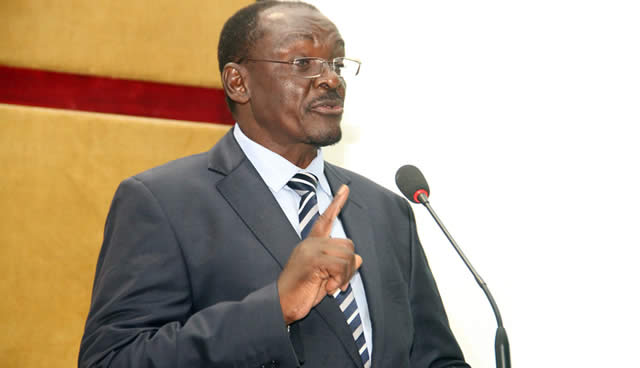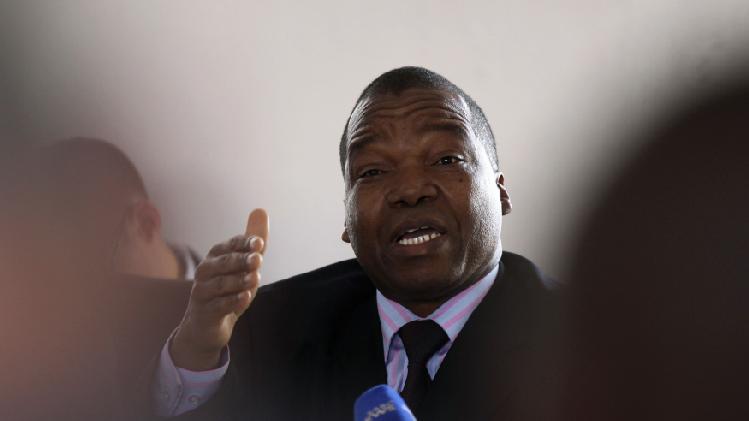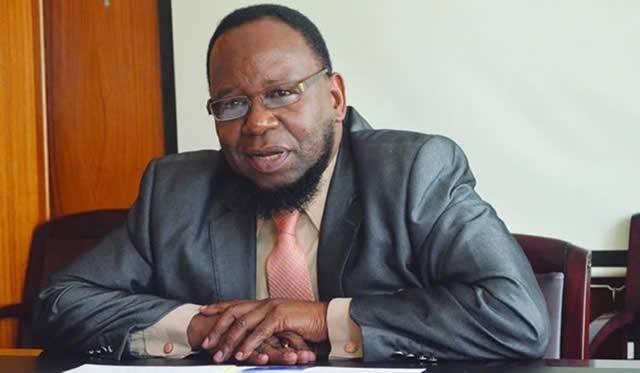National Pledge stems from Nziramasanga report

 Felex Share and Elita Chikwati—
Felex Share and Elita Chikwati—
The National School Pledge is part of the recommendations of the 1999 Presidential Commission of Inquiry into Education and Training and any attempts to block its implementation are misplaced, Primary and Secondary Education Minister Dr Lazarus Dokora said yesterday. State Security Minister Kembo Mohadi weighed in saying contrary to claims in some quarters, the National Pledge was not a Zanu-PF thing and the country stood ready to go to war if need be defending the values espoused in the National Pledge.
Opponents of the pledge are fulminating despite the fact that over 3.1 million Zimbabweans voted for the new Constitution from whose preamble the pledge was derived. The Commission of Inquiry, led by Dr Cephus Nziramasanga, was constituted by President Mugabe to diagnose the problems that were affecting the education sector.
Educationists and analysts weighed in, describing the initiative as the hallmark of patriotism that unifies and reinforces national values. Some, however, decried lack of wide consultation by Government with others querying what consultation can be better than the national referendum on the new Constitution.
Government introduced the pledge, which was officially launched at Harare High School on Tuesday, when schools opened for the second term. The wording of the pledge was extracted from the national Constitution which took effect in 2013 after receiving a remarkable endorsement from millions of Zimbabweans.
Dr Dokora said the Nziramasanga Commission recommended value in education and the national school pledge was part of it. He said although the recommendations were made in the late 90s, Government could not implement them because of the ravages of the west’s sanctions regime.
“Soon after independence, President Mugabe called for the collapsing of divisions in the education sector, which was along racial lines,” he said. “In 2013, the country adopted a new Constitution, which also promoted the issue of values. In 2014 we started working on the implementation of the Nziramasanga Commission recommendations.”
The national pledge is a global phenomenon as countries like the United States, Britain, Singapore, Canada, India, Nigeria and South Africa, to mention just a few, have national pledges. Britain has got an oath of allegiance that goes further to talk of bearing true loyalty to Queen Elizabeth, her heirs and successors with other pledges not even acknowledging the supremacy of God.
Said Dr Dokora: “The national school pledge comes from the Constitution and is never meant to indoctrinate children. People can check the preamble and see if it is offensive to anyone’s rights. “I am not founding a church. The pledge enables children to celebrate values especially the last line, which ‘We commit to honesty and the dignity of hard work. Who would not want that in citizens?”
In the pledge, children pledge their allegiance to God and the national flag and pay respect to the country’s freedom fighters who lost their lives during the liberation struggle.
Said Minister Mohadi, “We have a national pledge, which all of you are aware is resisted by the local regime change agents, the MDC formations being one of those agents, the civil society and their allies. This is a right from our Constitution. The preamble of our Constitution, which we all agree has that pledge.
It’s not Cde (Minister of Primary and Secondary Education Lazarus) Dokora’s imagination. “It is derived from the preamble of this Constitution, Zimbabwean Constitution. So anybody who says that this is Zanu-PF’s imagination, say no, it is the Constitution that we crafted together.”
Harare lawyer Mr Jonathan Samukange, said there was nothing wrong with Government implementing a common practice. “Patriotism begins by understanding your responsibilities as a citizen such that when you go out you can defend your country,” he said.
“Some of the problems we encounter are because people lack patriotism. Anyone advocating the contrary wants the Government of the day to fail. We have exported a lot of labour and have not benefited from this because people are not nationalistic enough”.
He went on: “As for the consultations, you cannot run a Government on consultation always. We elected leaders and they must govern not consult.” Zimbabwe Council for Higher Education chairperson Professor Christopher Chetsanga, said instilling patriotism in children was vital. “That is important and that is done at various levels and also having children to sing national anthem that is correct,” he said.
Legal expert Mr Terrence Hussein, said while there was nothing wrong with the pledge, consultations should have been done as was the case with the national anthem. “We should not tear each other for the sake of words but we should fight to bring people together and love this beautiful country,” he said.
“With respect, I must criticise how the pledge came about. There was very little consultation with the very people it was intended for. The beautiful national anthem we always sing came about after consultations and the music was obtained after a competition and the shortlisted tunes were broadcast and Zimbabweans voted for the tune they wanted. That was a product for Zimbabweans by Zimbabweans. People love it and will die defending it.
“The way the pledge came about defied the way in which national issues in institutions come about. Let it be owned and accepted by the people. Do not impose on them.” Progressive Teachers Union of Zimbabwe secretary general Mr Raymond Majongwe, said the pledge should have a national outlook.
“This could have been the best national pledge but it did not come out of national consensus,” he said. “The national pledge must reflect national aspirations, feelings and values and this can only be achieved if everyone is taken on board. The theme of the national pledge should reflect what we think, feel and how we want our nation to be.”
Zimbabwe Teachers Association chief executive, Mr Sifiso Ndlovu, said they had no problems with the wording of the preamble from which the pledge was derived. Teachers Union of Zimbabwe chief executive, Mr Manuel Nyawo, said the Ministry of Primary and Secondary Education needed to revisit the issue and implement it only after consultations.
In the United States, those who have refused to salute the national flag have been expelled from school.











Comments